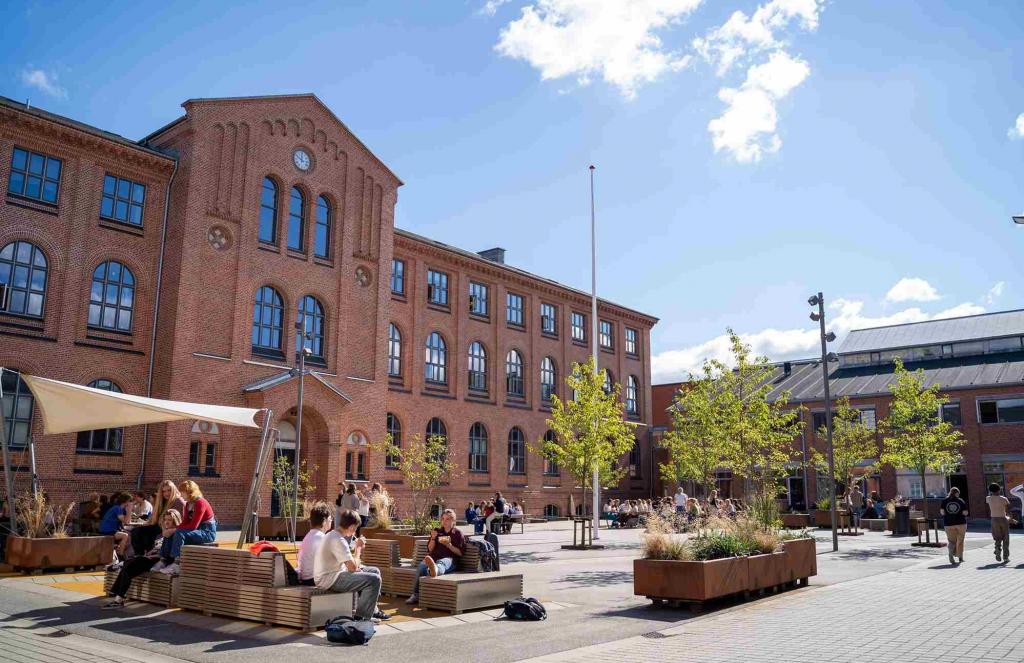Thessaloniki gets ready for its metro launch in November
The underground rapid transit lines have been under construction for almost two decades due to various project delays
 TheMayor.EU logo
TheMayor.EU logo 
Aalborg Cathedral School becomes a pioneer on national level, Source: Aalborg Katedralskole Facebook
No more blue Mondays in this educational institution
You’ve probably already heard of regional and national governments testing out the concept of 4-day work weeks as a way to boost societal well-being without sacrificing productivity. However, the staff at a school in the Danish city of Aalborg has decided that this benefit should also be taken to apply to students (well, and teachers, of course) by announcing a 4-day week experiment.
The educational institution in question is the Aalborg Cathedral School, which will be the first in Denmark to test this idea out. For this purpose, on selected Mondays, the school will remain closed extending the weekend.
The plan, however, will not apply to every single week on the curriculum, in fact, the change is taken with baby steps. Six Mondays will be selected to be off-days. And the free days won’t just come from nowhere as the summer holiday will proportionately be shortened by six days as well.
In essence, that means that Aalborg students won’t be getting any gifted Mondays off, and we wouldn’t expect it any differently in a country where the government has recently announced the cancellation of a public holiday.
The idea here is more about breaking through the standardized pattern of when it is expected to work and study and when to rest. The board would like to better the well-being of students by providing more flexibility and a chance for them to also participate in decisions about their lives.
“I think it sounds really nice to just have a few days to relax without having to stress about assignments,” says Albert Winther Pedersen, a student at the school, speaking to TV2 News.
The new initiative will kick in during the next school year after the summer break.

The underground rapid transit lines have been under construction for almost two decades due to various project delays

Now you can get your wine in Talence by paying directly in Bitcoin

That’s because the state has to spend money on updating the railway infrastructure rather than subsidizing the cost of the popular pass

Rethinking renewable energy sources for the urban landscape

The examples, compiled by Beyond Fossil Fuels, can inform and inspire communities and entrepreneurs that still feel trepidation at the prospect of energy transition

Now you can get your wine in Talence by paying directly in Bitcoin

The 10th European Conference on Sustainable Cities and Towns (ESCT) sets the stage for stronger cooperation between the EU, national and local level to fast track Europe's transition to climate neutrality.

At least, that’s the promise made by the mayor of Paris, Anne Hidalgo

The underground rapid transit lines have been under construction for almost two decades due to various project delays

At least, that’s the promise made by the mayor of Paris, Anne Hidalgo

Hostal de Pinós is located in the geographical centre of the autonomous region

Despite its church-y name, the district has long been known as the hangout spot for the artsy crowds

Urban dwellers across the EU are having a say in making their surroundings friendlier to people and the environment.

Forests in the EU can help green the European construction industry and bolster a continent-wide push for architectural improvements.

Apply by 10 November and do your part for the transformation of European public spaces

An interview with the Mayor of a Polish city that seeks to reinvent itself

An interview with the newly elected ICLEI President and Mayor of Malmö

A conversation with the Mayor of Lisbon about the spirit and dimensions of innovation present in the Portuguese capital














